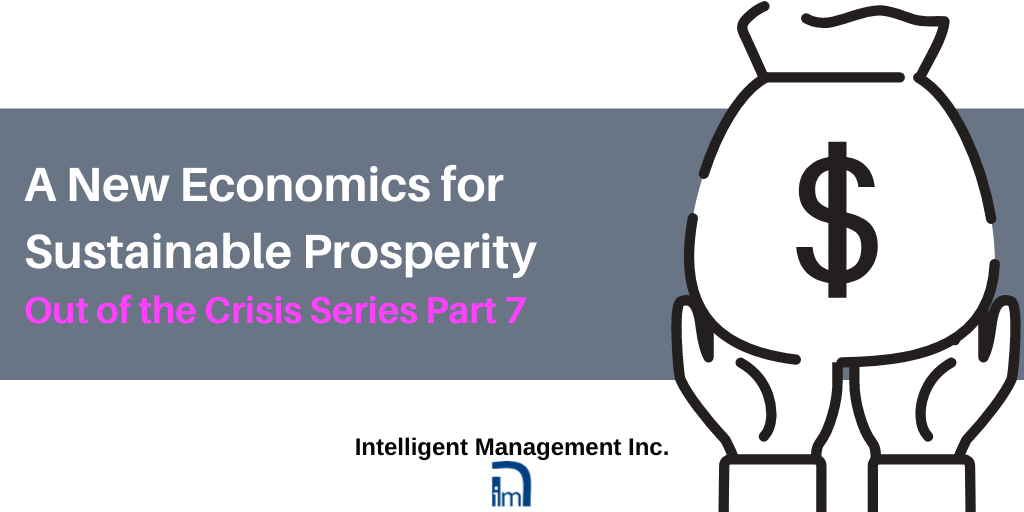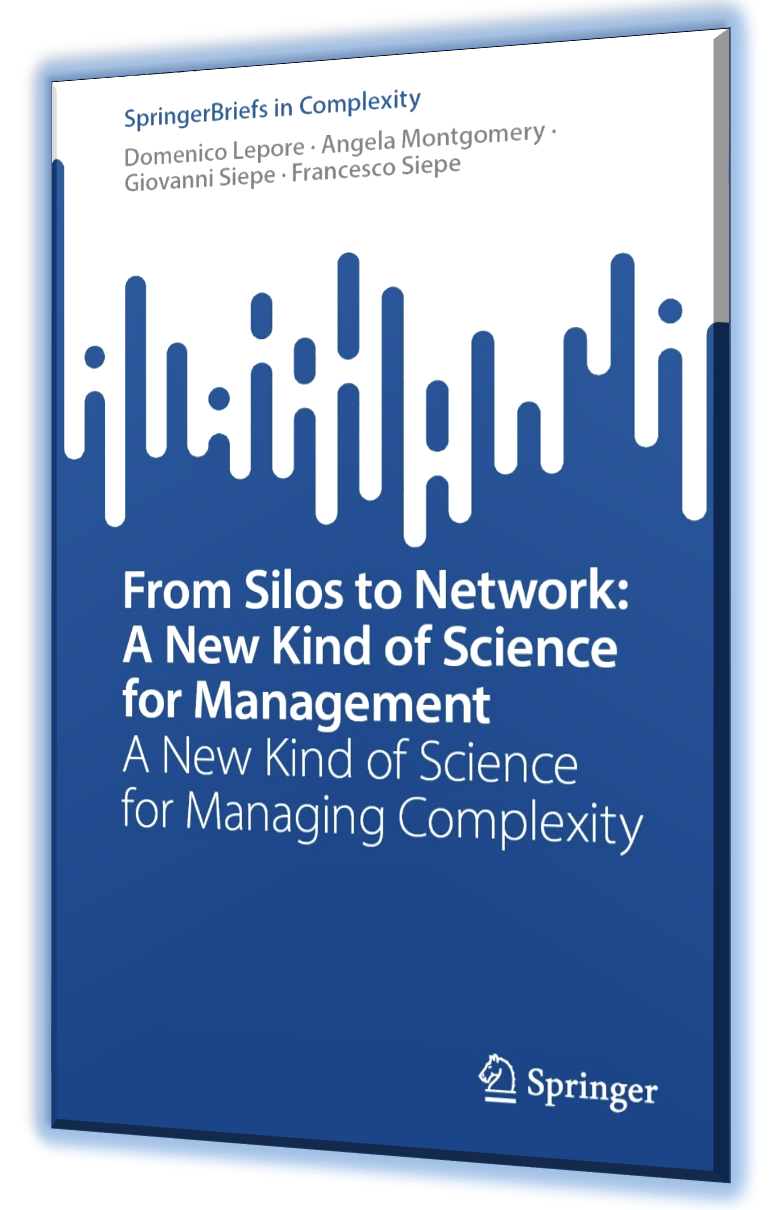
The current crises are driving home dramatically the realization that organizations need to make more and do more with the resources they have available. We will only achieve this if we are able to undertake a shift in the way we understand how to manage all the resources available in a sustainable way. It is not just about changing our ways but about changing our understanding: it requires a new epistemological framework. How can we do this? The science for this shift already exists thanks to the developments in systems science, even if this area is not yet common knowledge.
In order to put this science into practice, we can turn to the work of Dr. Deming and Dr. Goldratt; they have provided the foundation for it and the science of Networks is the ideal companion for the work of these two management giants (as well as the scientific backdrop for understanding how viruses propagate). We feel very fortunate and proud to have developed an operational way for their work (and the principles of Network Theory) to be integrated and made even more actionable through the Decalogue methodology. At the very heart of Deming and Goldratt’s monumental body of knowledge, there is the definition of a new covenant with the way we want to lead our lives and use our minds to ensure proper sustainability for our planet. The multiple crises we facing are are taking a terrible toll; we must transform this challenge into a stimulus to rethink a new economics based on sustainability and on a rational use of our resources.
A new economics of interconnection
Every one of us, at the level of individual, family, community, nation and beyond is interconnected; indeed, we are part of a network of interdependencies. This is not simply a political and sociological stance. There is an underlying scientific basis for this shift in worldview away from a Newtonian, industrial age notion of the whole being made up of separate parts towards one of dynamic interconnection. We know from science that cells and galaxies can be viewed as systems, and as such they obey certain laws. We define an organizational system as a network of interdependent processes that work together to achieve a goal. Such systems are made up of a web of interconnections. In other words, we are understanding more and more that the reality of our work is systemic. For this reason, any attempt to manage organizations (or, for that matter, to govern countries) that is not based on this awareness is doomed to create damage.
Through adopting the wisdom of what we can achieve by understanding the science of complex, oriented networks, we can also overcome the craze of “unlimited growth”, the lunacy of the promises that the financial world has engendered, the untenable divorce between Wall street and main street, between what humans can achieve by designing and producing products that help other humans and the fantasies of only-mathematically-possible financial contracts that help mainly “the 0.1%”.
We believe that, in spite of the disasters around us, we are experiencing a unique phase in our human history: we have the knowledge, scientific and otherwise, as well as the method to foster a more systemic use of the intellect to capitalize on our intuition, to develop thorough analyses, and to design and take correct actions for the common good. What we are talking about is a transformation that comes from a more evolved form of human intelligence, one that allows intelligent, thoroughly thought-through decisions to be manifested in intelligent action.
What we propose in this ‘Out of the Crisis’ series is neither a fantasy nor is it particularly complicated to create. What it does require, however, is the sharing of a paradigm and a sense of urgency.
The paradigm underpinning this transformation, from the prevailing management style into one of whole system optimization, is sustainability; the urgency stems from understanding that the world is experiencing a tectonic shift and this shift calls for a completely different style of leadership. This leadership must be inspired and informed by a higher, more evolved form of intelligence. It is an intelligence that connects cause and effect and that governs decisions always in the awareness of their wider, systemic implications.
In the darkest hours of the fight against the lethal virus of Nazism the answer came, beside the heroism of so many, with the development of a new science called Systems Theory. The long road to freedom from the enslavement of an outdated paradigm starts from there. It is a battle we can win; we just have to decide to fight it with the right weapons.
Other articles in this ‘Out of the Crisis’ series:
Part 1: A Serious Knowledge Gap Affecting Leaders and Executives
Part 2: What’s Wrong with Organizational Structures?
Part 3: Viral Insights from Managing Variation and Constraints
Part 4: How to Manage Decentralized Work
Part 5: Learning to Think Systemically to Make Informed Decisions and Pre-empt a Crisis
Part 6: Identifying Assumptions to Unlock Innovation and Move Beyond the Crisis
Contact: intelligentmanagement@sechel.ws
SCHEDULE AN INTRODUCTORY CALL WITH US






Leave a Reply